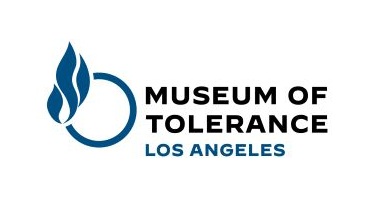- Mar 11, 2015
- 101,454
- 110,437
- 3,645
- Banned
- #1
Black Americans' Reaction to the Persecution of European Jews
by Bat-Ami Zucker
"The exploitation which the Negro suffers from the whites," wrote M. Rosenblatt, who investigated antisemitism in Harlem in 1939 for the Anti- Defamation League of B'nai B'rith, "he therefore experiences from the hands of Jews." Rosenblatt concluded, "the present antagonism grows out of the fact that whenever the Negro comes in contact with white discrimination he can find a Jew to blame." A confidential report on antisemitism in Harlem, prepared for the NAACP, reached similar conclusions: "The root of the problem is economic ... people of different nationalities do not naturally hate one another." A report from a Black Chicago lawyer to Walter White supported such views. It said that anti-Jewish feelings among Blacks focused on "Jewish merchants . . . who are regarded . . . as some sort of exploiters and as purveyors of inferior goods at extremely high prices " The NAACP and its tireless secretary, Walter White, did their utmost to distinguish between antisemitism, which they strongly rejected as "bigotry," and what they regarded as "a legitimate and understandable feeling" of resentment against "Jewish merchants in Negro neighborhoods, who charged high prices for inferior goods.
(For those who will try whataboutism, there is this)
Relations between the two groups before World War II were mainly of three kinds: Jewish employers/Black employees, Jewish landlords/ Black tenants, and Jewish small businessmen/Black customers. In these encounters the Jew appeared to the Blacks as exploiter and abuser, whether this was fact or stereotype. "The belief is widespread in the negro community," wrote a Black scholar in 1942, "that a large share of the exploiting landlords are Jewish." Discrimination against Blacks in employment and exploitation of Black labor were common charges against Jewish employers in the 1930s and 1940s. The so-called "slave market" in the Bronx became the symbol of Jewish maltreatment of Blacks. Nevertheless, in spite of the fact that the Jewish landlord, employer, and merchant had become "part of the folklore of black anti-Semitism in the 1930's and 1940's," a promising phenomenon emerged. A large Black organization-the National Association for the Advancement of Colored People (NAACP) strongly opposed the persecution of Jews in Germany and the spread of antisemitism in the United States. In fact, apart from the Jews, organized American Blacks were the only group to act promptly against Hitler's "reversion to barbarism" and to offer "condemnation of the unspeakable terror ... being inflicted upon the Jewish people in Germany . . . ."
Economic exploitation rather than racial prejudice was the dominant theme of Black antisemitism.45 Yet at the same time the latter was given a forward thrust by German propaganda and the popular exploitation of the Jew as national scapegoat. In fact, when examining Black response to Jewish persecution in Europe, one should take into account first, that white American society was generally indifferent to Jewish fate during the 1930's,46 and second that Black- Jewish relations had reached a disturbingly low point. Thus American Blacks could easily fit into the general American atmosphere of indifferent passivity in the face of Jewish suffering. In other words, given both the Blacks' own misery and the increased anti-Jewish feeling in white society,47 Black antisernitism would have been the expected behavior. Yet they chose a different path. Motivated not so much by tragic events for Jews as by their own interests, Blacks reacted immediately both to the racist implications of Nazism48 and more intensely still to the meaning for Blacks of Hitler's persecution of the Jews.

Annual 3 Chapter 7
www.museumoftolerance.com
When white Americans were non-committal to what Hitler was doing to Jews, blacks stood with Jews even as some Jews were exploiting blacks to make money. Yet today we have Jews who sound like the racists who were excluding their entry into this country during WW2.